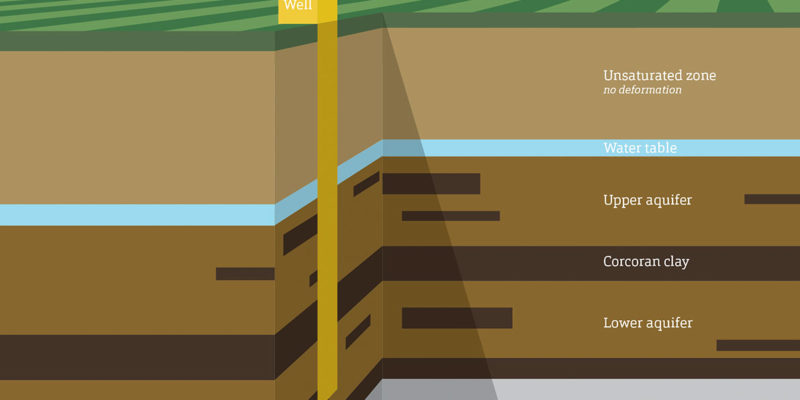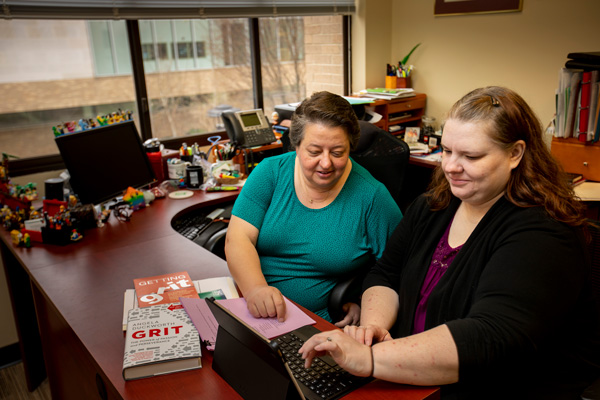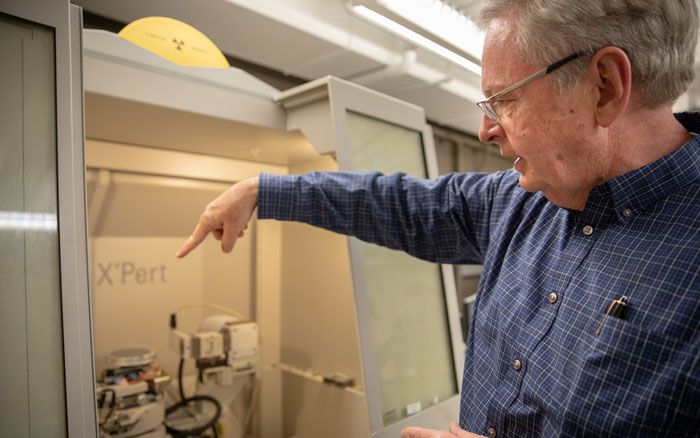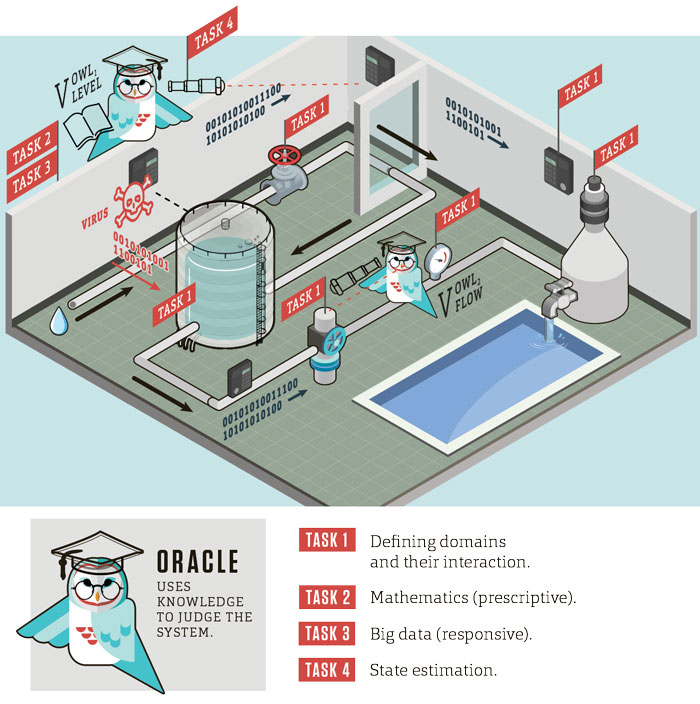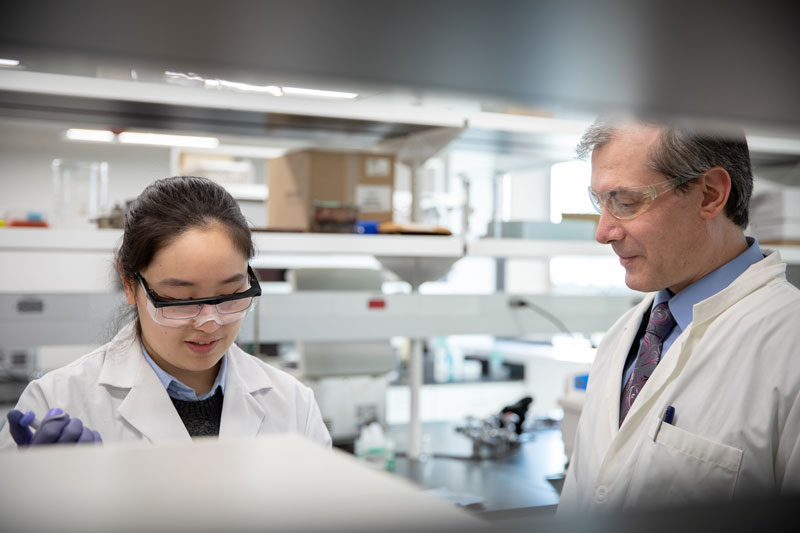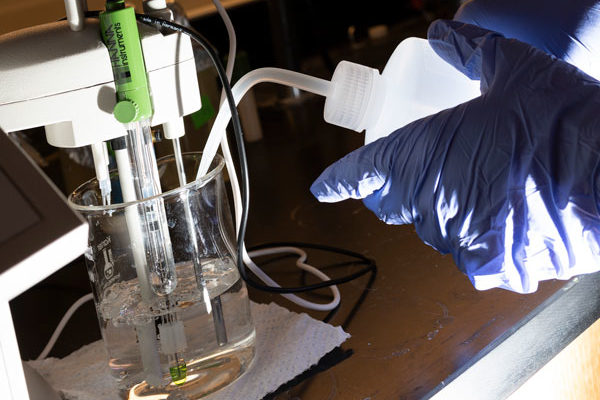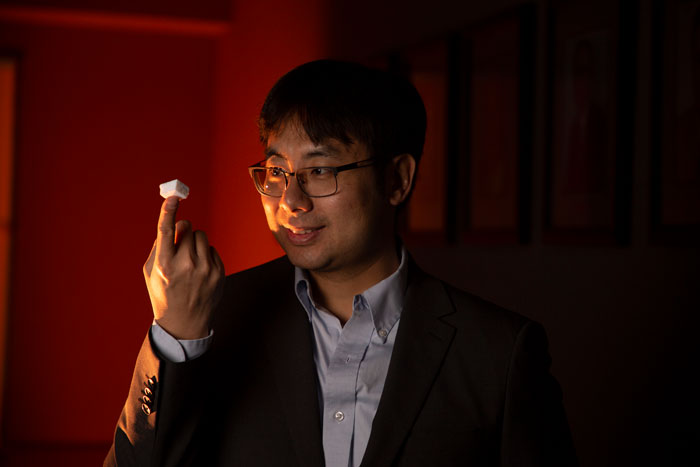Research
Groundwater mapping, managed flooding may help stop sinking
Parts of California’s Central Valley, the state’s most productive farm region, sunk as much as 28 feet during the first half of the 20th century, and if modeling is accurate, the ground will sink another 13 feet or more over the next 20 years.
Read More »True grit
Grit, or strength of character, can predict the academic success of college students more accurately than standardized test scores or demographic indicators, according to current psychological studies.
Read More »A new spin on thin films
You could say Jay A. Switzer is a spin doctor of sorts. The materials scientist and his research team have devised a way to create high-performance inorganic thin films. Also known as epitaxial films, they are used in the manufacture of semiconductors.
Read More »By the numbers: Spring 2019
257 – Missouri S&T students and staff members who spent “a day on, not a day off” performing service projects throughout Phelps County on Martin Luther King Jr. Day of Service. 535 – Earth orbits veteran astronaut Janet Kavandi, MS Chem’82, logged during her space flight career. Read more about Kavandi. 259 – Record number […]
Read More »Boosting cyber-physical security
A wide array of complex systems that rely on computers — from public water supply systems and electric grids to chemical plants and self-driving vehicles — increasingly come under not just digital but physical attacks. Bruce McMillin, professor and interim chair of computer science at Missouri S&T, is looking to change that by developing stronger safeguards […]
Read More »MXene discovery could improve energy storage
In spite of their diminutive size, 2-D titanium carbide materials known as MXenes are “quite reactive” to water, a discovery S&T researchers say could have implications for energy storage and harvesting applications such as batteries, supercapacitors and beyond. Their findings were published in 2018 in the American Chemical Society journal Inorganic Chemistry.
Read More »A faster charge for electric vehicles
One drawback of electric vehicles (EVs) is the time it takes to charge them. But what if you could plug in your EV and fully charge it as quickly as it takes to fill up a conventional car with gasoline? Missouri S&T researchers, in collaboration with three private companies, are working to make speedy charging […]
Read More »Want better concrete? Dilute the cement
It’s long been proven that adding nanoparticles to concrete improves strength and durability, but the cost of such processes has outweighed the benefits. Missouri S&T’s Hongyan Ma is working on a safer, simpler and potentially more affordable method of combining nanoparticles with concrete.
Read More »New leader at the helm of S&T’s research, graduate programs
An expert in multi-agent systems and artificial intelligence is now leading Missouri S&T’s research efforts. Costas Tsatsoulis, former dean of the College of Engineering at the University of North Texas, joined S&T as vice chancellor for research and dean of graduate studies on Sept. 4.
Read More »Crushing it for science
Want to build a better aerogel? You need to start by crushing them, say S&T researchers. Their findings were first published in August 2018 in Soft Matter, a Royal Society of Chemistry journal that focuses on the intersection of physics, chemistry and biology.
Read More »